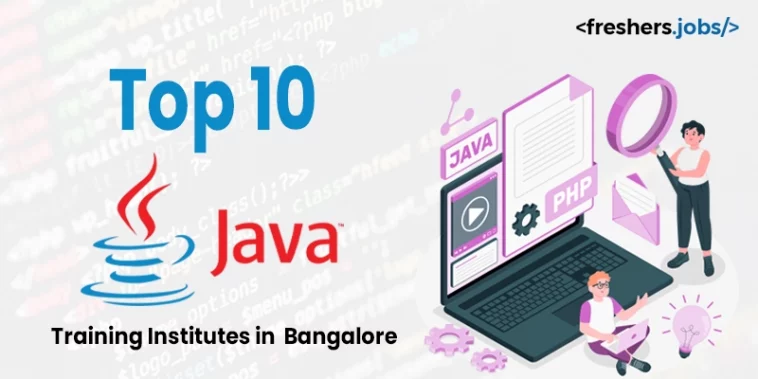Java is a prominent and widely utilized programming language in today’s business landscape. Despite emerging new languages and technologies, Java maintains its significance due to its robustness, versatility, and expansive ecosystem. It is a valuable choice for businesses, providing a strong foundation for developing diverse applications ranging from enterprise systems to mobile apps. One of the key strengths of Java lies in its platform independence, allowing applications to run seamlessly across different environments. This characteristic enhances its appeal for developers and businesses seeking a versatile solution. Java’s role in developing enterprise applications is noteworthy, as it offers a reliable framework for building scalable and efficient systems that meet the complex demands of modern business operations.

The thriving Java community and ecosystem contribute to its enduring relevance. Developers benefit from libraries, frameworks, and tools that facilitate efficient and streamlined development processes. The collaborative spirit within the Java community promotes the exchange of knowledge and ongoing enhancements, guaranteeing that the language stays at the forefront of technological progress. Security is an essential concern in the digital landscape, and Java addresses this by incorporating robust security features. Its architecture includes mechanisms for secure coding practices and a strong security manager, making it a trusted choice for applications where data protection is crucial. We will discuss the Top 10 Java Training Institute in Bangalore with its role, significance, key aspects, and career prospects.
Given below are the Top 10 Java Training Institute in Bangalore.
- FITA Academy
- Edureka
- Simplilearn
- Intellipaat
- Besant Technologies
- Apponix Technologies
- Inventateq
- ACTE
- ExcelR
- Datamites
FITA Academy
FITA Academy, distinguished as one of the best Java Course in Bangalore, offers a comprehensive selection of 120+ courses, accessible online and offline. The institute has gained widespread acclaim for its proficiency in delivering crucial professional certifications and extensive IT training, establishing itself as a prominent authority in the industry. Boasting a dedicated team of more than 1,000 experienced trainers, each with a decade of expertise, they have positively influenced the educational journeys of more than 75,000 learners. The institute’s unwavering commitment to providing top-notch training opportunities is evident through its multiple branches strategically located in Bangalore, Chennai, Pondicherry, Coimbatore, and Madurai, ensuring accessibility for individuals from various regions.
Why Java Course in Bangalore at FITA Academy?
FITA Academy has transformed the approach to training students in various IT skills, and their Java training exemplifies this commitment. The curriculum is a comprehensive package covering the essential concepts required for Java and Android application development proficiency. This encompasses topics such as Data Types, Variables, Methods, Classes, Objects, Collections, OOPS, File Handling, Exception Handling, JDBC, JSP, and Frameworks like Spring, Spring Boot, Hibernate, and more. In Java Training in Bangalore, students can be confident in receiving top-quality training that equips them with extensive industry knowledge of Java’s APIs, Libraries, and Development tools. Beyond academic training, they also provide distinctive placement support, exposing students to various career opportunities in the programming field.
Tailored Curriculum for Java Training in Bangalore
The syllabus covers the fundamental concepts of Java, like Interfaces, Polymorphism, Packages, Data types, Variables, Methods and Operators, Object Oriented Programming concepts, Java Basics, Constructors, Objects and Classes, Access Levels, Access Specifiers and Modifiers, Encapsulation, Arrays, Java I/O, Abstraction, Exception Handling, Casting, Wrapper classes, Collection Framework, Garbage Collection, Java Beans, Java Threats, Java Networking, String, String buffer, String Builder, PL/SQL, SQL and JDBC. The curriculum of the Java Course in Bangalore extends to EJB that consists of Entity beans, EJB transaction attributes values, Implementation of EJB at the component level, Enterprise JavaBeans components, Component types of EJB, Stateful and Stateless session beans, and EJB container services. The training assists the learners with the insights of J2EE, AJAX, HTML, HTML5, JQuery, JavaScript, Expression Language, Servlets, JDBC, EJB, JSTL, Hibernate, Spring, Frameworks, Struts, and MVC.
Expert Trainers of Java Training Institute in Bangalore
FITA Academy’s Java Training Institute in Bangalore has skilled trainers with hands-on industry expertise. This is one of the crucial elements that positions it among the Top 10 Java Training Institutes in the region. These dedicated instructors are committed to imparting theoretical knowledge while sharing invaluable real-world insights with students. Their crucial role involves keeping learners updated on the latest industry trends and ensuring adequate preparation for the dynamic field of Java.
Project Presentation Sessions Java Training in Bangalore
A distinctive feature of this institute’s Java Course in Bangalore is the inclusion of project presentation sessions. Recognising the importance of practical experience in mastering Java and preparing for a successful career, these sessions empower students to apply Java principles in real-world scenarios, providing valuable hands-on exposure.
Complimentary Placement Sessions Java Course in Bangalore
Going beyond the classroom, their commitment to Java Training in Bangalore extends to preparing students for the competitive job market. As part of this commitment, the institute offers complimentary placement sessions that cover various aspects, including resume building, refining interview skills, job placement assistance, and career guidance. These sessions are meticulously designed to support students in achieving their career objectives. With a vast network of more than 1,500 partner companies, they facilitate job placements for graduates, presenting many opportunities within the Java industry. This comprehensive network ensures learners have access to promising career opportunities, facilitating a smooth & successful transition into the professional world.
Edureka
Edureka specialises in delivering Java training for both novice and advanced learners. While their curriculum incorporates valuable learning materials, they prioritize online classes, potentially impacting the direct interaction between instructors and students. The course cost may be relatively higher compared to other institutes.
Simplilearn
Simplilearn provides comprehensive Java training with real-time assistance. Despite offering extensive facilities, their primary emphasis is online courses, which could affect direct interaction between trainers and aspirants.
Intellipaat
Intellipaat, a renowned online platform, provides a flexible Java Training Course covering fundamental to advanced-level concepts. Their focus on online courses may influence the direct interaction between learners and trainers and offer a higher price.
Besant Technologies
Besant Technologies specializes in Java Training to enhance skills and provide valuable industry knowledge. However, they may not be the ideal choice for those seeking a more profound learning experience.
Apponix Technologies
Apponix Technologies offers specialized Java Training tailored to industry-specific requirements. However, they may not have comprehensive placement support compared to some other institutes.
Inventateq
Inventateq provides an extensive Java course with essential skills and hands-on experience. However, they may not be the top choice for learners seeking a more comprehensive and in-depth learning experience.
ACTE
ACTE specializes in customized Java Training with practical experience to meet industry-specific needs. They might not offer as comprehensive practical training as some compared to other institutes.
ExcelR
ExcelR is dedicated to providing Java Training that covers comprehensive concepts. Despite these advantages, their level of placement support may be relatively less extensive compared to certain other institutes.
Datamites
Datamites provides Java courses with a focus on imparting essential skills. However, it’s important to note that their practical training component may not be as extensive as some other institutes.
Freshers Jobs carefully selected these institutes through meticulous research, considering factors such as brand reputation, student feedback, and a demonstrated track record of student achievements.
Role of Java in Today’s Business Environment
The evolution of Java’s role in web development includes technologies such as JavaServer Pages (JSP) and Servlets. It enables Java programs to execute with a Java Virtual Machine (JVM) on any device or platform. This cross-platform compatibility holds significant value in the business sector, where various systems and devices are used. Java finds widespread application in the development of enterprise-level applications. Numerous large-scale and mission-critical systems rely on Java, such as Customer Relationship Management software (CRM), Enterprise Resource Planning Systems (ERP), and Banking Applications. Its robustness and scalability make it well-suited for handling intricate business processes. Java is extensively utilized in web development, especially for creating server-side applications. Popular Java-based frameworks like Spring and JavaServer Faces (JSF) are favored for constructing scalable and maintainable web applications.
While Java’s presence in mobile development has diminished with the prominence of native and cross-platform frameworks like Kotlin (Android) and Swift (iOS), it remains relevant. Java continues to play a role in Android application development and is an integral part of the Android development ecosystem. Java has a significant footprint in the extensive data ecosystem, particularly in projects like Apache Hadoop and Apache Spark. Java’s performance and scalability make it a preferred choice for big data processing tasks, analytics, and scientific applications. It is also commonly employed in cloud-based applications and services, leveraging its ability to scale and handle substantial workloads in cloud environments.
Additionally, Java is instrumental in developing cloud-native applications. Java extends its versatility to the Internet of Things (IoT) development, serving as a platform-independent language for creating applications that run on IoT devices. Java’s adaptability proves beneficial in the diverse and fragmented landscape of IoT. A noteworthy aspect is Java’s expansive and active developer community, contributing to its continuous relevance and evolution in the ever-changing realm of technology.
What is Java?
Java is a programming language that operates at a high level and follows an object-oriented approach. It is specifically crafted to be platform-independent, allowing developers to write code that runs on any device/ operating system with a Java Virtual Machine (JVM). As one of the most widely employed programming languages, Java is acclaimed for its simplicity, adaptability, and portability. It remains a preferred option for creating diverse applications and systems. The extensive availability of libraries, frameworks, and tools facilitates businesses in finding solutions and support for their development requirements. Numerous legacy systems and applications are constructed using Java, and businesses persist in employing Java to maintain and upgrade these systems, ensuring the endurance and robustness of their software infrastructure.
Merits of Java
- Versatility: Java is a versatile language applicable in diverse domains, encompassing web development, mobile applications, enterprise systems, big data processing, cloud computing, and more. This adaptability contributes to its extensive adoption across various industries.
- Object-Oriented Programming: As an Object-Oriented Programming (OOP) language, Java promotes principles such as encapsulation, inheritance, and polymorphism. These OOP concepts are pivotal in organizing code, enhancing reusability, and facilitating maintainability, making Java an excellent choice for constructing intricate and scalable systems.
- Robust and Reliable: Java’s design prioritizes reliability and robustness, incorporating features like automatic memory management (garbage collection), exception handling, and strong type-checking. These elements reduce the likelihood of programming errors and enhance the stability of applications.
- Large Ecosystem and Community: With a vast and dynamic developer community and an extensive ecosystem of libraries, frameworks, and tools, Java facilitates developers in finding solutions, sharing knowledge, and collaborating on projects. Popular Java frameworks like Spring further propel the growth of the ecosystem.
- Enterprise-level Applications: Java is a prevalent choice for developing enterprise-level applications due to capability to handle large-scale systems and features like multithreading and concurrency. These attributes make Java suitable for constructing resilient and scalable business applications.
- Security: Java places significant emphasis on security, incorporating built-in security features. The Java Virtual Machine (JVM) provides a secure execution environment critical for applications operating in sensitive domains like finance, healthcare, and government.
- Continuous Evolution: Java boasts a history of continuous improvement and adaptation to emerging technologies. Regular updates and introducing features in newer Java versions ensure that the language remains pertinent, allowing developers to leverage the latest advancements in the industry.
- Backward Compatibility: Java maintains a high level of backward compatibility, enabling existing Java applications to run on newer JVM versions without substantial modifications. This characteristic is crucial for businesses with extensive codebases, minimizing the cost and effort of migrating to newer Java versions.
- Community-driven Development: Java’s development is shaped by the collaborative Java Community Process (JCP), where input from the community plays a critical role in defining the language’s future. This collective approach ensures that Java evolves to meet the emerging needs of developers and businesses.
Key Components of Java
- Java Virtual Machine (JVM): An integral component of the Java platform, the Java Virtual Machine serves as a crucial execution environment for Java bytecode. It facilitates running Java applications on any device or platform equipped with a compatible JVM. Managing memory, offering runtime support for Java programs, and ensuring platform independence through bytecode interpretation and execution are key functions of the JVM.
- Java Development Kit (JDK): The JDK, a comprehensive software development kit, encompasses essential tools for Java development. This includes the compiler (javac) for converting Java source code to bytecode, the JVM for running Java applications, and various other development tools and utilities.
- Java Runtime Environment (JRE): As a subset of the JDK, the JRE incorporates the JVM and necessary libraries for running Java applications. It lacks development tools such as the compiler, requiring end-users to execute Java applications on their machines.
- Java Standard Edition (Java SE): Also known as J2SE, Java SE forms the core of the Java platform. It establishes the groundwork for developing and executing general-purpose Java applications, featuring libraries, APIs, and the essential functionality of the Java language.
- Java Enterprise Edition (Java EE): Renamed Jakarta EE, Java EE extends the Java platform to support large-scale, enterprise-level applications. This extension includes additional APIs and libraries catering to web services, distributed computing, and enterprise application development functionalities.
- Java Micro Edition (Java ME): Tailored for mobile and embedded applications, Java ME is suitable for the Internet of Things (IoT). It provides a condensed version of the Java platform, specifically designed for resource-constrained environments.
- Java Language: The Java language is a fundamental element characterized by its class-based, object-oriented nature and syntax akin to C++. Key language features include classes, objects, inheritance, polymorphism, encapsulation, and interfaces.
- JavaAPIs (Application Programming Interfaces): Java boasts an extensive array of APIs that developers can leverage to access pre-built functionality. Covering diverse areas like networking, database connectivity, graphical user interfaces (GUI), and input/output, examples include the Java Standard Edition API (java.util, java.io) and Java Enterprise Edition API (Java Servlet API, Java Persistence API).
- Java Class Library: Comprising pre-compiled classes and methods, the Java Class Library offers common functionality. It includes packages such as java.lang, java.util, java.io, empowering developers to accelerate development by leveraging these classes.
- Integrated Development Environment (IDE): Although not part of the core Java platform, IDEs like Eclipse, IntelliJ IDEA, and NetBeans are essential tools for Java developers. Providing features such as code editing, debugging, and project management, these IDEs enhance the overall development experience.
Job Opportunities in the Java field
- Software Engineer/Programmer: Professionals in software engineering or programming specializing in Java engage in developing, testing, and maintaining software solutions, contributing to various stages of the software development life cycle.
- Web Developer (Java-based): Java is widely employed in web development, and experts in Java frameworks like Spring and JavaServer Faces (JSF) are sought after. These web developers create dynamic, scalable, and secure web applications.
- Mobile App Developer (Android): Java is the primary language for Android app development. Proficient Android developers in Java create mobile applications for smartphones and tablets, utilizing the Android SDK and related tools.
- Java Developer: A Java developer’s responsibility is to design, implement, and maintain Java-based applications. They contribute to diverse projects, from web development to creating enterprise-level applications.
- Full-Stack Developer (Java): Full-stack developers adept in Java work on applications’ front-end and back-end components. They may leverage Java frameworks for server-side development and use JavaScript frameworks for the front end.
- Cloud Engineer (Java): With the increasing prevalence of cloud computing, there is a demand for Java developers with expertise in deploying and managing Java applications on platforms such as AWS, Azure, or Google Cloud.
- Big Data Developer (Java): Java plays a significant role in big data processing frameworks like Apache Hadoop and Apache Spark. Developers specializing in this domain focus on processing and analyzing large datasets using Java.
- Quality Assurance (QA) Engineer (Java): QA engineers with proficiency in Java concentrate on testing Java applications, ensuring software quality and reliability. They may utilize testing frameworks and tools compatible with Java.
- Enterprise Java Developer: Focused on constructing large-scale, mission-critical business applications, enterprise Java developers often work with Java EE (Enterprise Edition) technologies and frameworks, developing robust and scalable solutions.
- Java Architect: A Java architect’s responsibility is to design the overall structure of Java applications, make high-level design decisions, and ensure that the system’s architecture aligns with business objectives. Their expertise often includes designing scalable and maintainable systems.
- DevOps Engineer (Java): DevOps engineers with Java skills concentrate on integrating development and operations processes. They may oversee automation, continuous integration, and deployment pipelines for Java-based applications.
- Technical Lead/Manager (Java): Technical leads or managers in the Java domain oversee development teams, guide architectural decisions, and ensure that projects are delivered on time and within specifications.
- Educator/Trainer (Java): Individuals proficient in Java may explore opportunities in education and training, serving as instructors at educational institutes or trainers for corporate learning programs.
Java’s enduring prominence in the dynamic landscape of programming languages is a testament to its unwavering strengths. As we delve into the vast and ever-evolving realm of technology, Java stands tall with its robustness, versatility, and flourishing ecosystem. In the presence of emerging languages and technologies, businesses continue to stand firm in their consistent choice of this option.We discussed the top 10 Java training Institute in Bangalore, offering valuable insights for individuals searching for optimal Java training.




